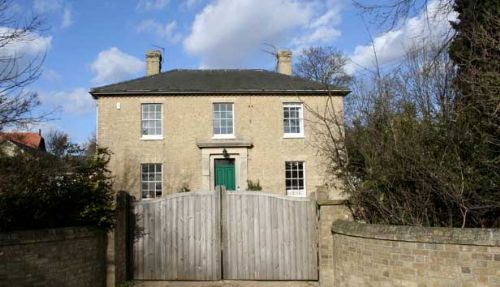
With the prospect of a new ’mansion tax’ being widely reported as a possible measure in the forthcoming Budget on the 21st March, leading rural advisers Saffery Champness, chartered accountants, and Smiths Gore, land agents and chartered surveyors, remain concerned about how such a tax would be implemented.
It has already been suggested that the new property tax would be a trade-off for a reduction in the 50p rate of Income Tax (possibly to 45p); thus moving the burden of taxation from income to wealth. The likely threshold for the ’mansion tax’ has been reported to be ’2 million, levied at rate of 1% on properties over that value.
Andrew Turner, Partner, Smiths Gore, comments: ’What is being proposed is an annual charge, rather than a single levy at the point of sale. This will entail a major revaluation of the nation’s housing stock and clearly this will affect London disproportionately. However, there are very high value properties across the country, and I can see it being a major job to first identify and subsequently value those properties that may fall into the ’2 million plus bracket.
’And it is unclear how farms and other properties with a commercial element will be treated. Many small farms, which may have too little land to be commercially viable, are bought by non-farming families as ’lifestyle’ properties, and many, due to the high value of farmland, are worth well over the ’2 million mark. Will these fall in the legislation or will the land be excluded?’
Mike Harrison, Partner, Saffery Champness Landed Estates and Rural Business Group, adds: ’As always with taxation, the devil is in the detail. Even if a mansion tax is announced by the Chancellor in the Budget it will be some time before it will be possible to see who is affected. However, there will need to be clear distinctions between high-value residential properties in cities and towns and, for example, the small country estate where the house itself may be of relatively low value in the context of the overall property, including land and commercial buildings.
Mike Harrison adds: ’If a mansion tax is implemented then there needs to be very clear rules on how the threshold is set and the property types to be included, and excluded, within the tax legislation.
’A real concern is that the tax will be a disincentive to investment from overseas and there are concerns about the general shift proposed from income to capital taxation. For example, the non-doms levy launched in 2008 (and soon to become ’50,000 for some individuals) saw a significant number of high net-worths leave the UK and more could follow if a mansion tax is implemented.
’Mansion tax may turn out to be a distraction and an issue that is put in ’too difficult for now’ file while alternatives are considered. There are bigger issues to deal with such as the funds and property held offshore and not correctly reported, as well as stamp duty avoidance. We expect these to be issues that will be targets for the Chancellor in his forthcoming Budget.’
